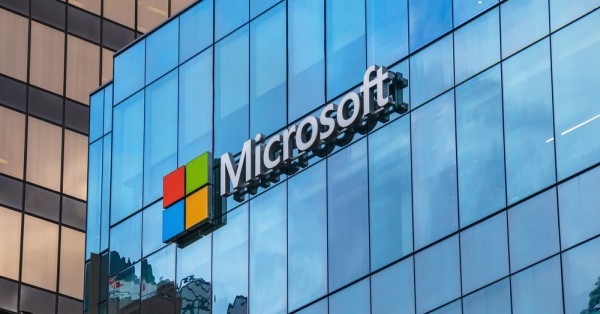Microsoft‘s Q3 Earnings Analysis: A Deep Dive into Cloud and AI Contributions
Microsoft recently disclosed its financial results for the third quarter of fiscal year 2025, revealing significant growth driven predominantly by its cloud and AI segments. This performance analysis is crucial for telecom executives, network strategists, and CTOs, particularly those integrating or expanding cloud and AI capabilities in their operations.
Microsoft’s Financial Performance in Q3 2025
The tech giant reported a robust revenue increase to $70.1 billion, marking a 13% rise year-over-year. This growth was even more pronounced in constant currency terms, indicating a 15% increase. Notably, the operating income followed suit, with a 16% increase to $32.0 billion. Microsoft’s net income saw an 18% increase, reaching $25.8 billion, with diluted earnings per share also up by 18% to $3.46. These metrics not only underscore Microsoft’s financial health but also reflect the growing market demand for their cloud and AI offerings.
Cloud and AI: The Growth Engines for Microsoft’s Q3 2025 Earnings
Microsoft Cloud was a standout performer, with its revenue surging by 20% to $42.4 billion. This growth is a testament to the continued demand for Microsoft’s differentiated cloud services. The Intelligent Cloud segment, which includes server products and cloud services like Azure, reported a 21% revenue increase to $26.8 billion. Azure itself witnessed a staggering 33% growth, which is indicative of the high demand for scalable and robust cloud infrastructure solutions that can support sophisticated AI applications.
Productivity and Business Processes Through AI and Cloud
The Productivity and Business Processes segment also showed impressive growth, with revenue up by 10% to $29.9 billion. Microsoft 365 Commercial products and cloud services were significant contributors, with an 11% growth. Dynamics 365, a suite of enterprise resource planning and customer relationship management applications, saw a 16% revenue increase, highlighting the robust adoption among businesses seeking integrated, AI-enhanced business management solutions.
Advances in Personal Computing and Digital Advertising
This segment, which encompasses Windows, Devices, Gaming, and Search, posted a 6% increase in revenue, reaching $13.4 billion. Notably, search and news advertising revenue, excluding traffic acquisition costs, jumped by 21%. This suggests a robust engagement with Microsoft’s digital advertising platforms, likely bolstered by AI-driven customization and analytics.
Cloud and AI: Strategic Implications for Telecom and IT Industries
The strong performance of Microsoft’s Cloud and AI offerings is not just a corporate success story but a bellwether for broader industry trends. Telecom executives and IT strategists should note the pivotal role of cloud infrastructures in supporting expansive digital ecosystems. Microsofts Azure platform, with its deep integration capabilities and comprehensive solutions, demonstrates the critical nature of robust cloud services in todays digital economy.
Furthermore, the growth in Dynamics 365 and Microsoft 365 underscores the increasing reliance on cloud-based enterprise applications that leverage AI for enhanced productivity and operational efficiency. Companies in the telecom sector should consider how such tools can be integrated into their service offerings to enhance value and competitiveness.
Looking Ahead: Microsoft’s Forward-Looking Guidance in AI and Cloud
While Microsoft plans to provide more detailed forward-looking guidance in its earnings call, the trends observed this quarter suggest sustained growth in cloud and AI sectors. Telecom and IT businesses should stay attuned to Microsofts strategic directions, as these will likely influence cloud service innovations and AI developments. Understanding these trends will be crucial for aligning business strategies with the evolving technological landscape.
In conclusion, Microsoft’s Q3 earnings for 2025 highlight the significant impact of cloud and AI on its growth trajectory. For telecom and technology sectors, these results are not just numbers but indicators of the critical technologies shaping the future of business operations and customer interactions. As these sectors continue to evolve, the insights provided by Microsoft’s performance offer valuable benchmarks for strategic planning and investment.
Investor and Analyst Information
For further details on Microsofts performance and strategic outlook, stakeholders are encouraged to review the full earnings report and participate in the earnings call. This engagement will provide deeper insights into Microsofts operational strategies and market expectations.



























